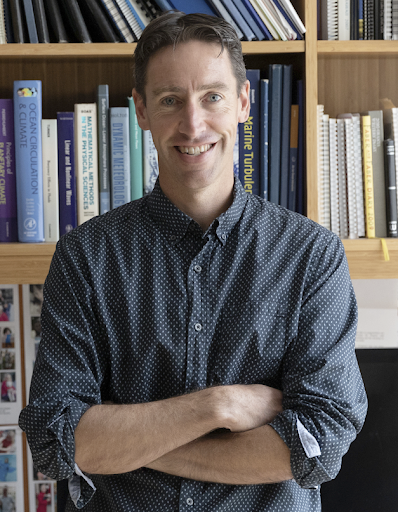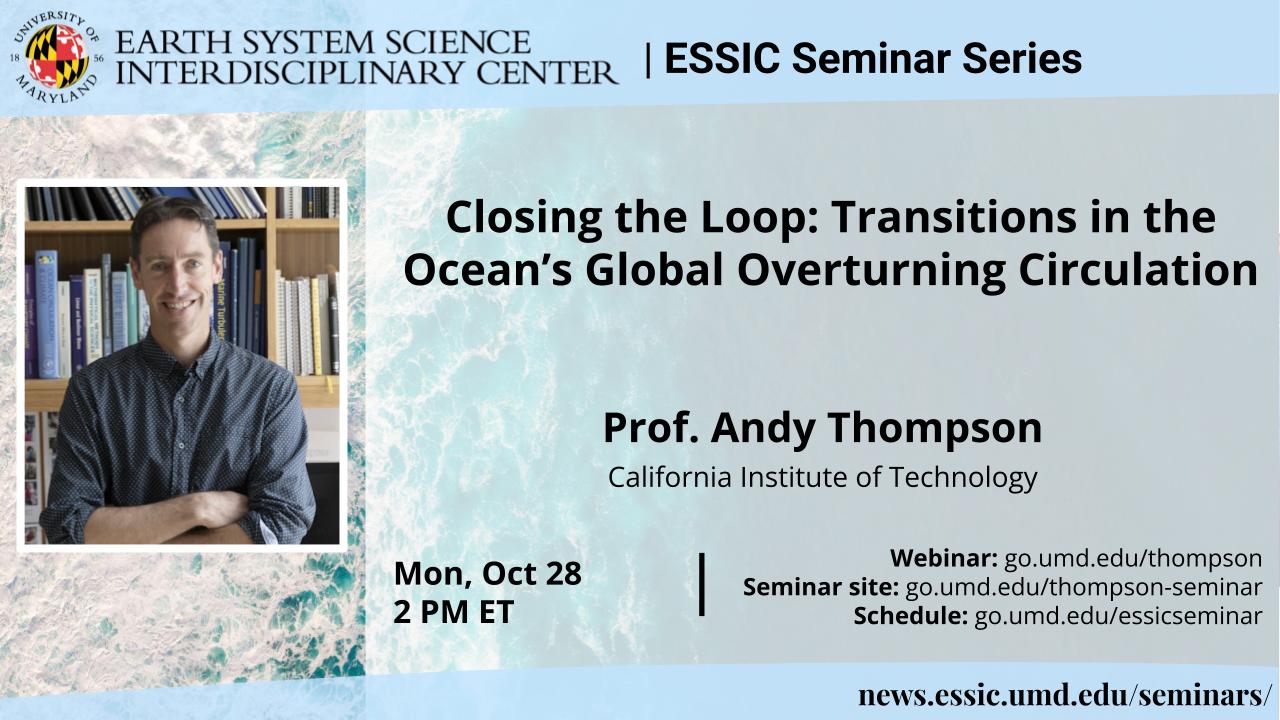
Closing the Loop: Transitions in the Ocean’s Global Overturning Circulation
Prof. Andy Thompson
California Institute of Technology
Monday October 28, 2024, 2 PM ET
Abstract:
The ocean’s global overturning circulation connects surface and abyssal waters and thus plays a prominent role in Earth’s climate through its regulation of heat and carbon storage. The overturning circulation also exists to deliver water from regions of buoyancy gain, largely at the low latitudes, to regions of buoyancy loss in polar regions. This characteristic, combined with the geometry of the ocean basins, places important constraints on the structure of the overturning circulation for given climate and surface forcing conditions. In this talk, I will discuss the physical processes that control the transient adjustment of the ocean’s overturning circulation to surface forcing perturbations over decadal to multi-millennial time scales. A collection of millennial-length GCM simulations is first used to examine the response of the Atlantic meridional overturning circulation (AMOC) to an abrupt quadrupling of atmospheric carbon dioxide. An AMOC weakening or collapse is consistently simulated during the first century in these models, but they exhibit diverse behaviors over longer time scales, showing different recovery levels over a range of timescales. This recovery time scale is shown to sensitively depend on model representations of sea ice and the hydrological cycle. On shorter, centennial, timescales the global ocean response to a perturbation in the AMOC is described, which includes a subsurface warming of the Indo-Pacific basins and a global reduction in upper-ocean nutrient concentrations. Across all of these scales, the three dimensional nature of the circulation as well as dynamical differences between Atlantic, Indo-Pacific and Southern Oceans exert a strong influence on overturning transitions.
Biosketch:
Andy Thompson is the John S. and Sherry Chen Professor of Environmental Science and Engineering at the California Institute of Technology and the Director of the Linde Center for Global Environmental Science. His research uses a combination of sea-going observations, satellite remote sensing, and idealized numerical models and theory, to study the physical processes by which the ocean couples to and influences other components of the climate system, including the atmosphere, cryosphere, and marine ecosystems. Thompson’s research group is particularly interested in high latitude processes, including the impact of ocean turbulence on the evolution of sea ice in the marginal ice zone and the pathways by which the ocean transports heat to the grounding zone of the Antarctic Ice Sheet. He received his Ph.D. in Physical Oceanography from Scripps Institution of Oceanography in 2006 and held NERC Postdoctoral and Advanced Fellowships in the UK at the University of East Anglia, the University of Cambridge and the British Antarctic Survey.
Webinar:
Event site: https://go.umd.edu/thompson-seminar
Zoom Webinar: https://go.umd.edu/thompsonwebinar
Zoom Meeting ID: 992 2712 1419
Zoom password: essic
US Toll: +13017158592
Global call-in numbers: https://umd.zoom.us/u/aMElEpvNu
For IT assistance:
Cazzy Medley: cazzy@umd.edu
Resources:
Seminar schedule & archive: https://go.umd.edu/essicseminar
Seminar Google calendar: https://go.umd.edu/essicseminarcalendar
Seminar recordings on Youtube: https://www.youtube.com/user/ESSICUMD

